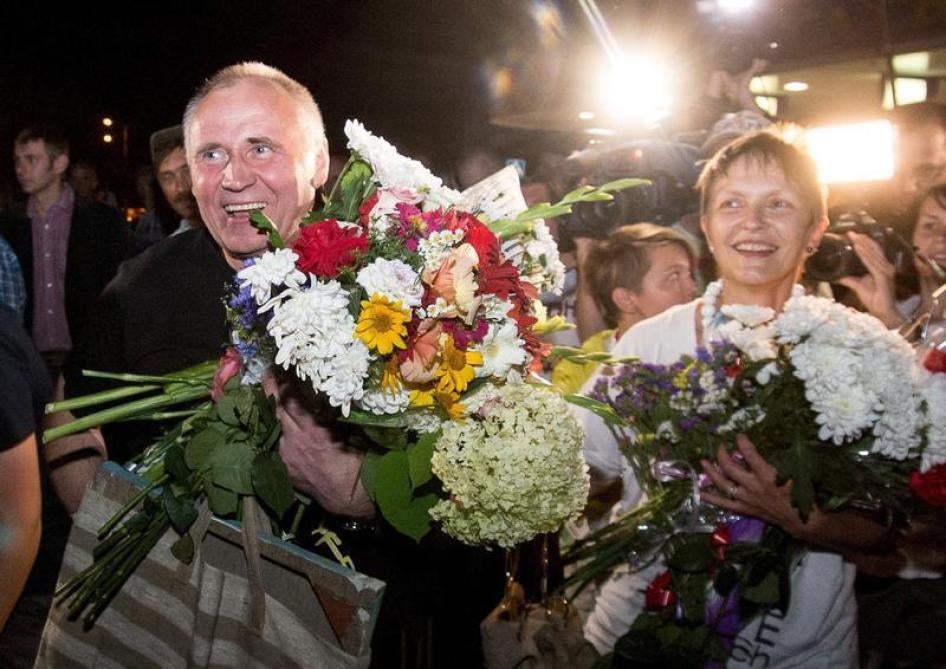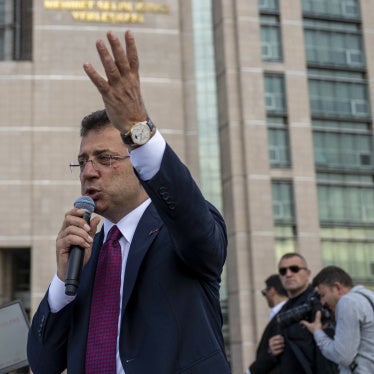The news was good, if unexpected: On August 22, Belarus’ President Aliaxander Lukashenka pardoned on “humanitarian grounds” six men imprisoned by the authorities. International and domestic rights groups and organizations had recognized them as “political prisoners” and had been pressuring Belarus for their release, in some cases for years. Mykalai Statkevich, the best known of the released men, was a contender in the last presidential elections of 2010. In the post-election crackdown, authorities under Lukashenka’s government brought bogus charges of “organizing mass riots” against Statkevich and he was convicted and sentenced to six years in prison.
When I watched videos, shared on social networks, of the men returning home and being greeted by relatives and friends, crying with joy, I thought of Ales Bialiatski, one of Belarus’ leading human rights defenders. He was sentenced to four-and-a-half years on trumped-up charges of tax evasion, and spent almost three years in jail before the authorities released him in June 2014. Statkevich had already spent almost five years in jail by the time his release came. Like Bialiatski and the other men who have been released, he should not have been jailed in the first place.
The news of the presidential pardon has been welcomed domestically and internationally. For the European Union, the prisoners’ release follows years of consistent pressure on Lukashenka’s government, both through targeted sanctions and political statements. Domestic groups are skeptical about this move signifying real change for Belarus’ repressive regime, especially considering that three other people have recently been detained on apparently politically motivated charges, and many view the pardon as a strategic move by Lukashenka ahead of the next presidential elections, scheduled for October.
Lukashenka has ruled Belarus for over 20 years and shows no intention of going anywhere. Since the last elections, Lukashenka’s authoritarian government has jailed, harassed, and intimidated dozens of activists and opposition members, leaving no strong and unified opposition to challenge him in the upcoming elections.
Considering past experience, the EU and other actors would be well advised to keep questioning Lukashenka’s “humanitarian” intentions unless and until Belarus’ government takes other meaningful steps to improve the human rights situation in the country and stop quashing peaceful dissent.
Otherwise, the chances are that the men who have been released will quickly be replaced by others.









